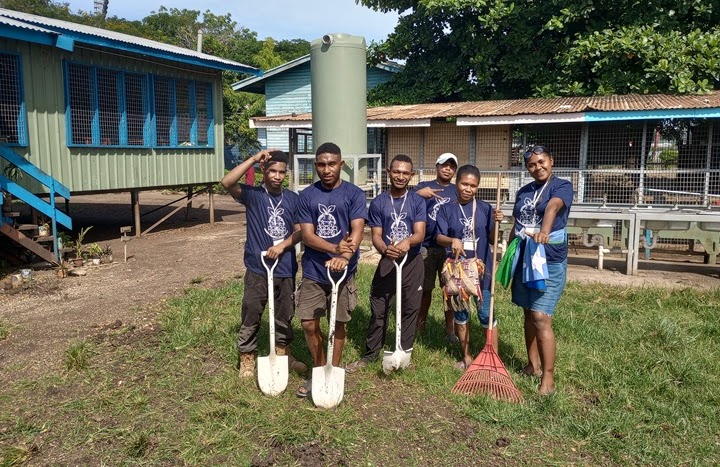PAPUA NEW GUINEA: Salesian Sisters Launch New Technical Secondary School for Girls
The Caritas Sisters of Jesus, part of the Salesian family, recently launched a new technical secondary school for girls in Kimbe, Papua New Guinea. The Salesian sisters opened their first school in the country in East Boroko, Port Moresby in 1996. Now a little more than 20 years later, they are launching this second technical school to educate poor youth in the region.
The school’s two founders, Sr. Sara Park and Sr. Florentina Cho, settled in Kimbe in early Dec. 2016. They rented a hall from a local Catholic parish and started their humble new school with two make-up classrooms. The official start was on Feb. 6, 2017, when the Salesian sisters finalized the registration of the first students, graduates of the eighth grade, and held the first school year opening ceremony.
Another group girls, graduates of grade 10, requested that they be able to continue their education as well and join the school. The Caritas Sisters accepted them, and they started Grade 11 with more than 100 new students. Right now, 115 girls are studying at the secondary technical school. The students are learning the technical skills needed to either advance into higher learning or gain employment.
“Salesian programs are so successful in part because they remain flexible and diversified to meet the needs of their students,” says Father Mark Hyde, executive director of Salesian Missions, the U.S. development arm of the Salesians of Don Bosco. “Being an integral part of the communities in which they work, Salesian sisters are aware of how important providing access to education is for girl and have created programs to directly address those needs.”
Providing education for girls and young women is particularly important in Papua New Guinea, where girls also have substantially less access to basic education and healthcare than their male counterparts. Violations of women’s rights are also nearly systemic throughout the country, with nearly two-thirds of women having experienced violence.
Twenty-eight percent of the country lives below the poverty line. Close to 50 percent of adults are illiterate and 25 percent of children are unable to attend school. Part of the problem with getting to school, work and hospitals have to do with Papua New Guinea’s infrastructure. In rural areas, where nearly 88 percent of the population resides, there are few roads or means of transportation to get to schools or places of employment.
Sourcs
ANS – Papua New Guinea – Caritas Sisters open a new Secondary Technical School
World Bank – Papua New Guinea Poverty




